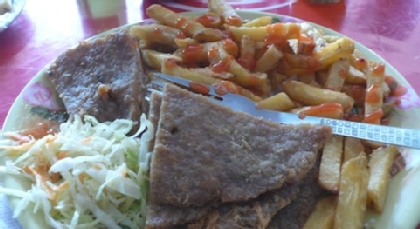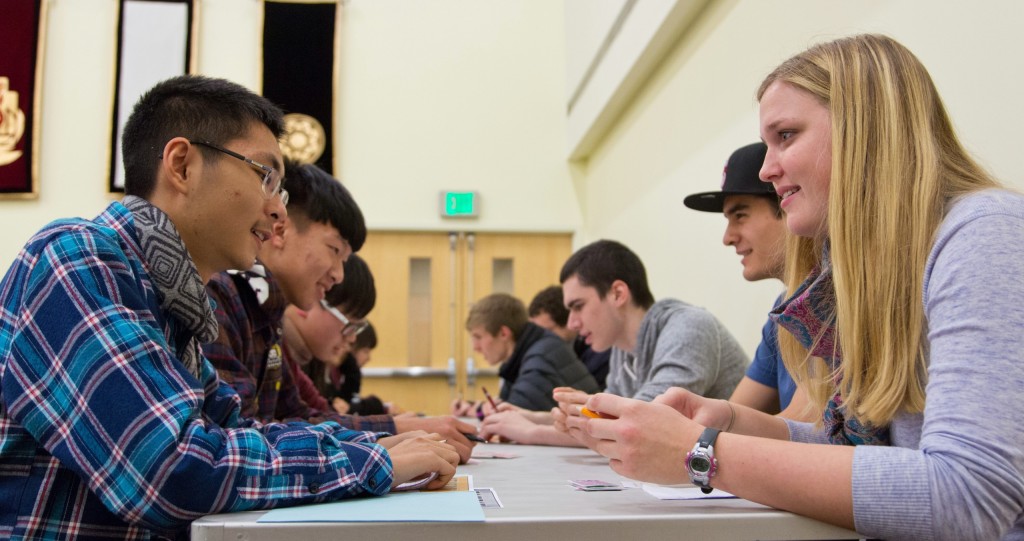Page 100 • (3,805 results in 0.032 seconds)
-
on a very regular basis. When I was asked to teach this class, I decided that I’d work with the students to create a real exhibit in the Scandinavian Cultural Center! Jen Jenkins, Chair of the Scandinavian Studies Program, approved a topic for the course that would also allow the course to fulfill a Scandinavian Studies elective credit. With the course taking place during the Spring, and with all the conversations around campus about social justice, I thought people might be interested to learn
-
://studyabroad.sit.edu/advisors-faculty/seminars-abroad-for-faculty/ • School for Field Studies – www.fieldstudies.org Since 1980, the School for Field Studies (SFS) has been teaching students to address critical environmental problems using an interdisciplinary, experiential approach to education. Students on SFS programs study at research stations in Costa Rica, Turks and Caicos, Australia, New Zealand, Panama and Bhutan examining the interdependent cultural, economic, and ecological aspects of real-world
-

January 28, 2010 Uganda: Food blog By Theodore Charles ’12 One of the things I have found most exciting about living in Kampala is trying a variety of different cultural foods. There are many different places that you can try these foods, ranging from expensive and boutique to roadside vendors on highways between towns. “The food here is not only delicious, it is a cultural experience that is not to be missed.” (Photo by Theodore Charles’12) I decided to throw together a short list of some must
-

February 7, 2014 Chinese students pair up with Lutes in a “speed-dating” exercise at PLU on Jan. 30 designed to discover cultural intersections. (Photo: John Froschauer / PLU) International ‘Speed Dating’ Creates Cultural Connections By James Olson ’14 Students from six Beijing high schools congregated in the Anderson University Center on Jan. 30 to participate in a cultural exchange that looked a lot like a speed-dating session—on purpose. The students, who were visiting Pacific Lutheran
-
core) Processor Windows 11 Pro 16GB RAM 256GB SSD hard drive 14″ widescreen display Integrated Wireless Integrated Webcam Microsoft Office Pro 3 year warranty AppleDesktop Apple M2 Mac mini Apple M2 chip with 8-core CPU and 8-core GPU Mac OS 14 Sonoma 16GB Unified Memory 256GB SSD hard drive 24-inch LG monitor (second monitor – additional $165 department purchase) Two Thunderbolt / USB 4 ports Two USB-A ports Wired keyboard and mouse Microsoft Office for Mac 3 year warranty Laptop Apple M2 MacBook
-
IntroductionAfrican ArtFind out moreIn terms of land mass, Africa is a large continent, in which all of the United States, Europe, China, India, Mexico, and Japan could easily fit. It is also a place of tremendous diversity, in terms of languages spoken, ethnic identities, cultural traditions, environments in which people live and work, and historic experiences. Sadly, popular culture has profoundly shaped what Africa, Africans, and their rich and diverse cultures are “supposed” to look like
-
Tongue Dry,” and co-editor of Closer to Liberation: A Pina/xy Activist Anthology. She received a BA in History and Science from Harvard and an MFA in fiction and nonfiction from the Rainier Writing Workshop. Jen is also a co-founder of the cultural democracy institutions, MediaJustice and ReFrame. Originally from a landlocked part of the Chicago area, Jen now lives with her family in Seattle, near the Duwamish River and the Salish Sea. Her debut book, Nervous: Essays on Heritage and Healing, is now
-
systems. Much of my past research has focused on interactions between herbivores and algae in marine systems. This has included studies of geographical gradients of herbivorous fish diversity and how temperature effects on physiology may play a role in driving this pattern and the effects of fisheries and disease on sea urchins and kelp forest ecology. My current research projects include studies of the community ecology of rocky shores of Puget Sound, disease ecology of sea urchins, and larval
-
Orchestra please select and prepare a few demanding excerpts from Tchaikovsky Symphony No.5). Saxophones: 1) Perform one of the two orchestral excerpts provided: Bizet, m. 17-46, or Rachmaninoff, all. 2) Perform a solo work (movements or excerpts are acceptable) of approximately 3-4 minutes, or perform one fast etude from the Ferling 48 Studies. Trumpets: Returning students: please perform the exposition (beginning up to measure 146) of the first movement of the Hummel Trumpet Concerto. Parts for
-
about French-speaking cultures in Europe, Africa, Asia, and/or the Americas. French 101 (offered in the Fall semester and J-Term) is intended for true beginners. French 102 (Spring semester) is a continuation of FREN 101 or of a full year of high school French. French 201 and 202: Intermediate French I & II – GE, VW Achieve intermediate proficiency* in French by reviewing grammar, developing vocabulary, and improving oral expression, through cultural content emphasizing the diverse heritage of
Do you have any feedback for us? If so, feel free to use our Feedback Form.


